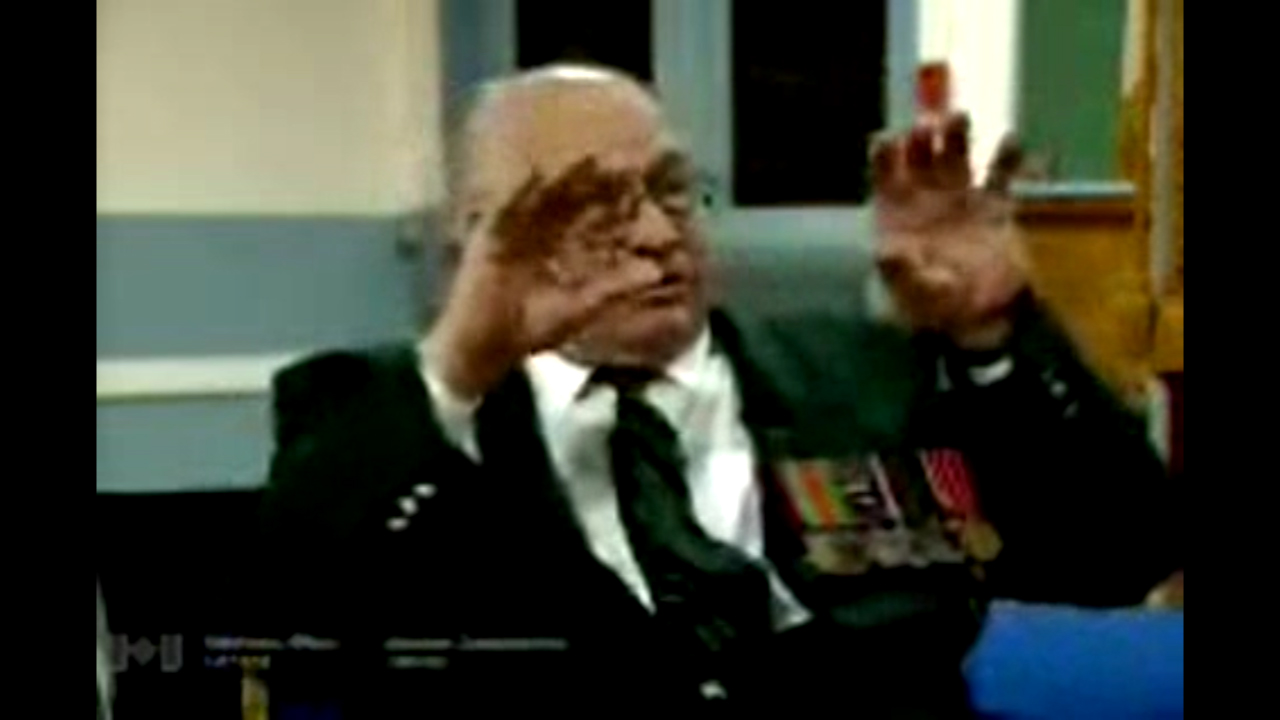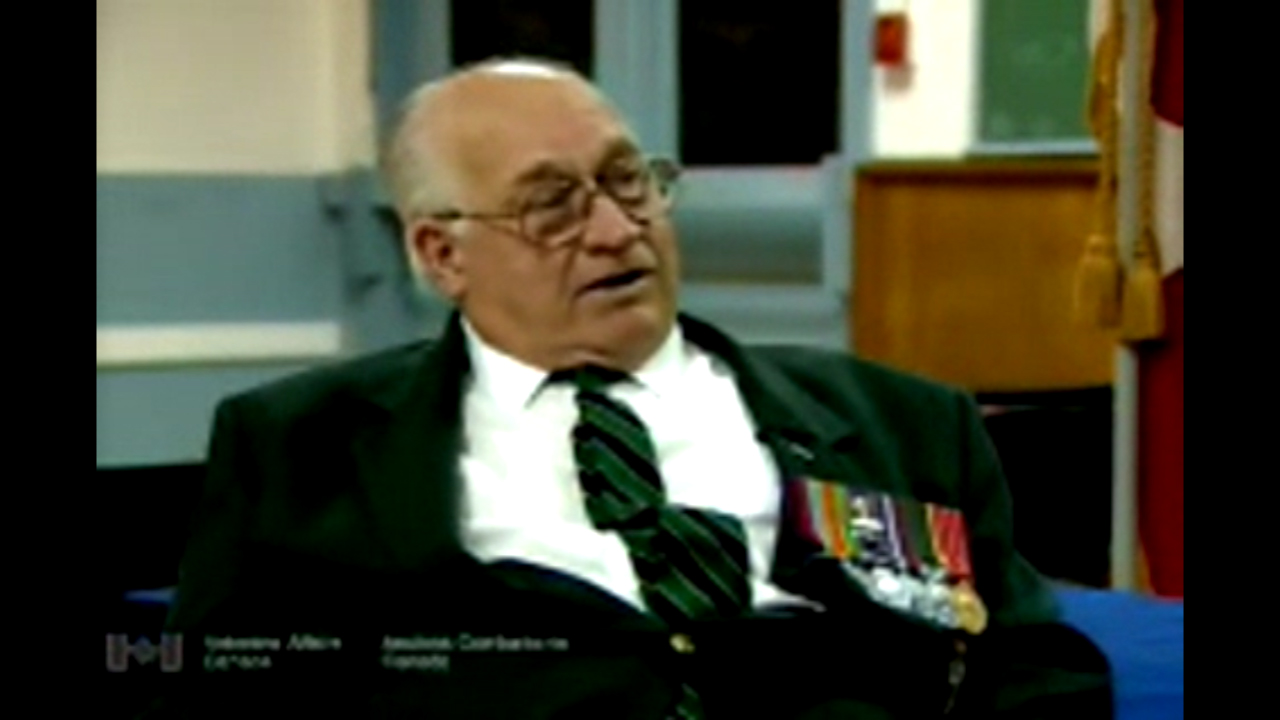Taken Prisoner of War by the Germans
The Dieppe Raid
Warning!
This video contains graphic content that may offend some viewers. Viewer discretion is advised.
Taken Prisoner of War by the Germans
Transcript
They kept us there in this French,
it used to be a French prison camp. I forget the name of it, and
they interrogated us and then they loaded us in boxcars,
I think it was forty to a car, wounded and everything.
They gave us a loaf of bread, about that big, it was like a brick
We stood on it, you couldn't eat it, at least, I eventually did,
but it was terrible stuff. And they moved us on up to a stalag
in Germany. So we arrived at this stalag 8B,
and oh gosh hungry. I was never so hungry in all my life
and this English chap came out and he handed me a tin
of condensed milk and a can of rolled oats.
And at that time they used to have little blowers they made to
heat things and they'd take wood chips, and they give you a thing
and he loaned me his blower, and I cooked up these oats and
I filled it with condensed milk and I thought I'd died
and gone to heaven.
Because this is after, this is about two weeks eh,
and we've had nothing to eat other than this lousy bread
that was sour. And then coming up into Germany
we were quite a while coming up and I used to stand on the bread
to look out the little window
you know, use it for a pillow, but like I say
we eventually ate it
It was terrible stuff.
Interviewer: So where were you, so where did,
where did they eventually take you men?
Well they took us to the stalag 8B
Interviewer: 8B
Yeah, mm hmm
Interviewer: What was your impression of stalag 8B?
Well it was one huge prison camp and it was loaded with guys.
Punjabs, Air Force, Aussies, British, Canadians, everybody.
And once you got into the hum of things
it was something like these prison camp pictures you see
like (inaudible) and that, you know, you had the monotony
and the just sitting around playing cards
and scrounging for something to eat and existing.
Interviewer: What was the command structure like
in that prison camp, on the Allied side?
Well we had a senior British officer and of course
we kept to our military discipline, more
to show the Germans that we weren't downcast or you know
that we weren't, we didn't want them to think that we were
you know miserable so we kept ourselves as clean as we could.
We kept our uniforms clean, and our boots clean,
and when we went anywhere, we marched in a group.
And when they took us out on a working party,
we marched in a group
and we tried to look as good as we could.
Interviewer: Did the Canadians stay together
and the other groups?
Yes, yes, yes. The Canadians had their own compound.
But we used to visit with the British, and the Aussies,
we'd trade stuff. They lined us up all outside
and surrounded us with machine guns and
that's when they put us in chains. They chained us up
after the, this German, big German major read this edict
where they had found Germans on the beaches that were tied,
and dead, and that we were gangsters and we had murdered them
and as a reprisal they were gonna put us in these chains.
Well it wasn't chains, at first it was rope. They tied us up at
it was later on they brought out the chains, and they were in,
we were in chains. I wasn't in that long, I was in
for a short length of time because I was sent out
on a working party. But I was in for a while
but I think all together they were in16, 12-16 months
they were in chains as a reprisal.
Interviewer: Now they would be in chains for
how many hours a day?
All day.
Interviewer: All day?
And all night.
Interviewer: And sleeping accommodations?
Same, in chains.
But you could take them off with a sardine key.
They got to be a joke like everything else, you know.
They could be opened with a sardine key.
Description
Mr. Curry describes his first few days as a German Prisoner of War.
Kenneth Curry
Mr. Curry was born in England in 1922. He was the youngest of two brothers and emigrated to Canada with his family at the age of one. The family settled in Stoney Creek, Ontario where Mr. Curry went to school and also served in the Army reserve. Mr. Curry falsified his age by one year in order to enlist with the Royal Hamilton Light Infantry. His war service included participation in the Dieppe Raid where he was taken prisoner of war.
Meta Data
- Medium:
- Video
- Owner:
- Veterans Affairs Canada
- Duration:
- 04:18
- Person Interviewed:
- Kenneth Curry
- War, Conflict or Mission:
- Second World War
- Location/Theatre:
- Europe
- Battle/Campaign:
- Dieppe
- Branch:
- Army
- Units/Ship:
- Royal Hamilton Light Infantry
Related Videos
- Date modified:










